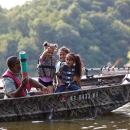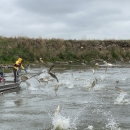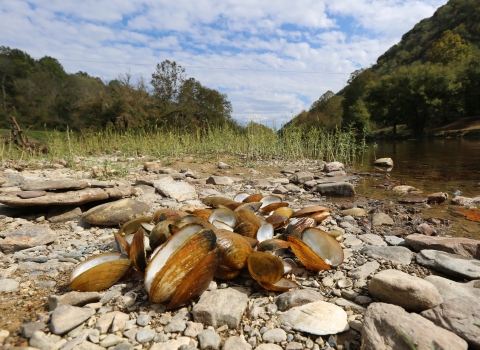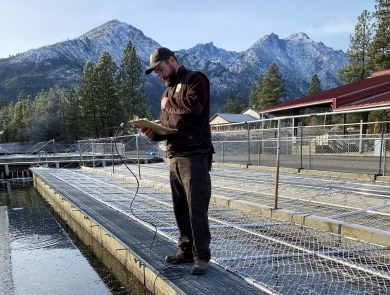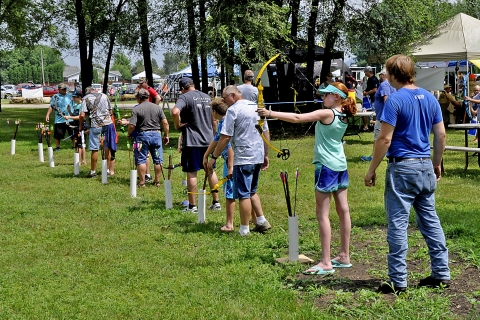About Us
The La Crosse Fish Health Center:
Established in 1962, the La Crosse Fish Health Center serves as the region’s fish doctors. We provide fish health inspections and diagnostic services to national fish hatcheries in Wisconsin, Michigan, and Missouri. Like all animals, fish are susceptible to a variety of environmental, nutritional, and infectious diseases. If left untreated, these diseases can often lead to death. Infectious diseases, those caused by pathogens - organisms such as parasites, bacteria or viruses - are of special concern because they can be easily spread to other fish within a hatchery, to another hatchery during fish transfers, or to wild populations if infected fish are released. Through surveys, inspections, and research we help to keep fish, freshwater mussel, and amphibian populations healthy for the continuing benefit of the American people.
What We Do
How We Help
- Assist in maintaining healthy populations of fish in national fish hatchery and tribal facilities.
- Assist state, federal and private managers in diagnosing and controlling infectious disease agents.
- Monitor use of aquatic animal drugs and chemicals.
Our Organization
The La Crosse Fish Health Center is housed within the Midwest Fisheries Center, which also includes the La Crosse Fish and Wildlife Conservation Office, Whitney Genetics Laboratory and administrative, GIS and outreach staff, as well as the Regional Watercraft Safety Coordinator.
The Midwest Fisheries Center is the region’s Fish Technology Center for U.S. Fish and Wildlife Service. Fish Technology Centers provide leadership in science-based management of trust aquatic resources through applied research and the development of new concepts, strategies and techniques to solve problems in aquatic resource conservation. Established in 2015, the Midwest Fisheries Center’s mission is: “Working in partnership, we provide leadership in science, technology and education for conservation of aquatic ecosystems emphasizing fisheries, aquatic invasive species invasive species
An invasive species is any plant or animal that has spread or been introduced into a new area where they are, or could, cause harm to the environment, economy, or human, animal, or plant health. Their unwelcome presence can destroy ecosystems and cost millions of dollars.
Learn more about invasive species , genetics and aquatic animal health for the benefit of the public”.
Our Species
We work with various hatchery fish including lake sturgeon, pallid sturgeon, coaster brook trout, lake trout, cisco, rainbow trout, largemouth bass, smallmouth bass, walleye, bluegill, yellow perch and black crappie as well as various amphibian and mussel species which are sensitive to changes in the environment. Some of these are threatened or endangered species undergoing restoration efforts.
Projects and Research
Key Initiatives
- Provide disease certifications for fish prior to transfers and/or stocking.
- Survey wild populations of aquatic species for target and emerging pathogens to determine their distribution.
- Conducts research on fish pathogen management and control.
Across the country, scenes of thousands of freshwater mussel shells scattered on the banks and bottoms of lakes and rivers haunts scientists. For the most part these mussel die-offs are unexplained and mysterious. Pollution and contaminants are a well known cause of mortalities but in the case of these die-offs there were no contaminants found....
Visit Us
Our lobby features informational displays describing local aquatic wildlife and our scientific research and conservation efforts, a Mississippi River mural and an aquarium of local native fish. The lobby is open to the public. Our laboratories and other work areas are not generally open for tours so we encourage visitors to email or call to pre-arrange a tour.
Get Involved
The Midwest Fisheries Center offers environmental education activities for community groups and schools. In addition, the center can lend fishing poles to local community groups. Each year, the center co-sponsors several events in the community. There are a variety of volunteer opportunities available in several different areas.



